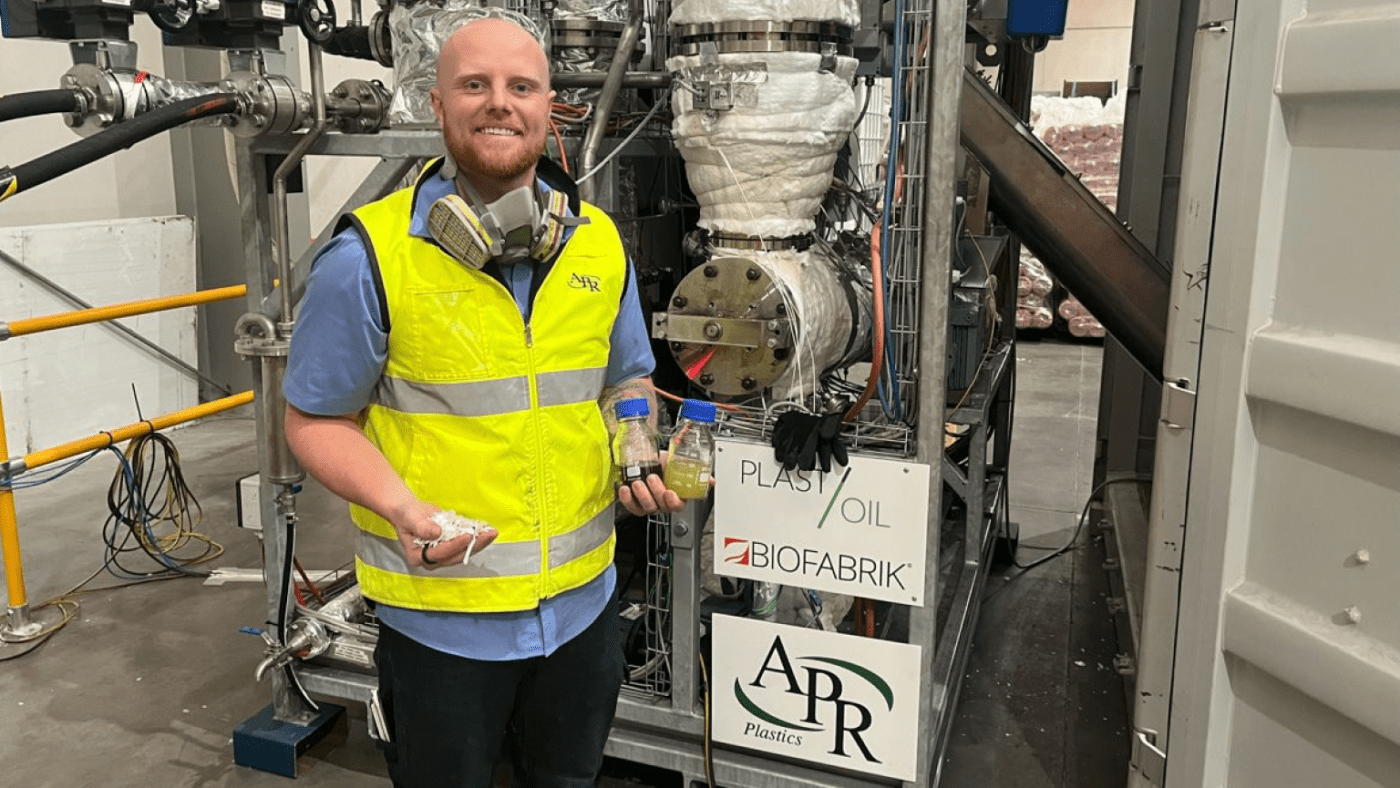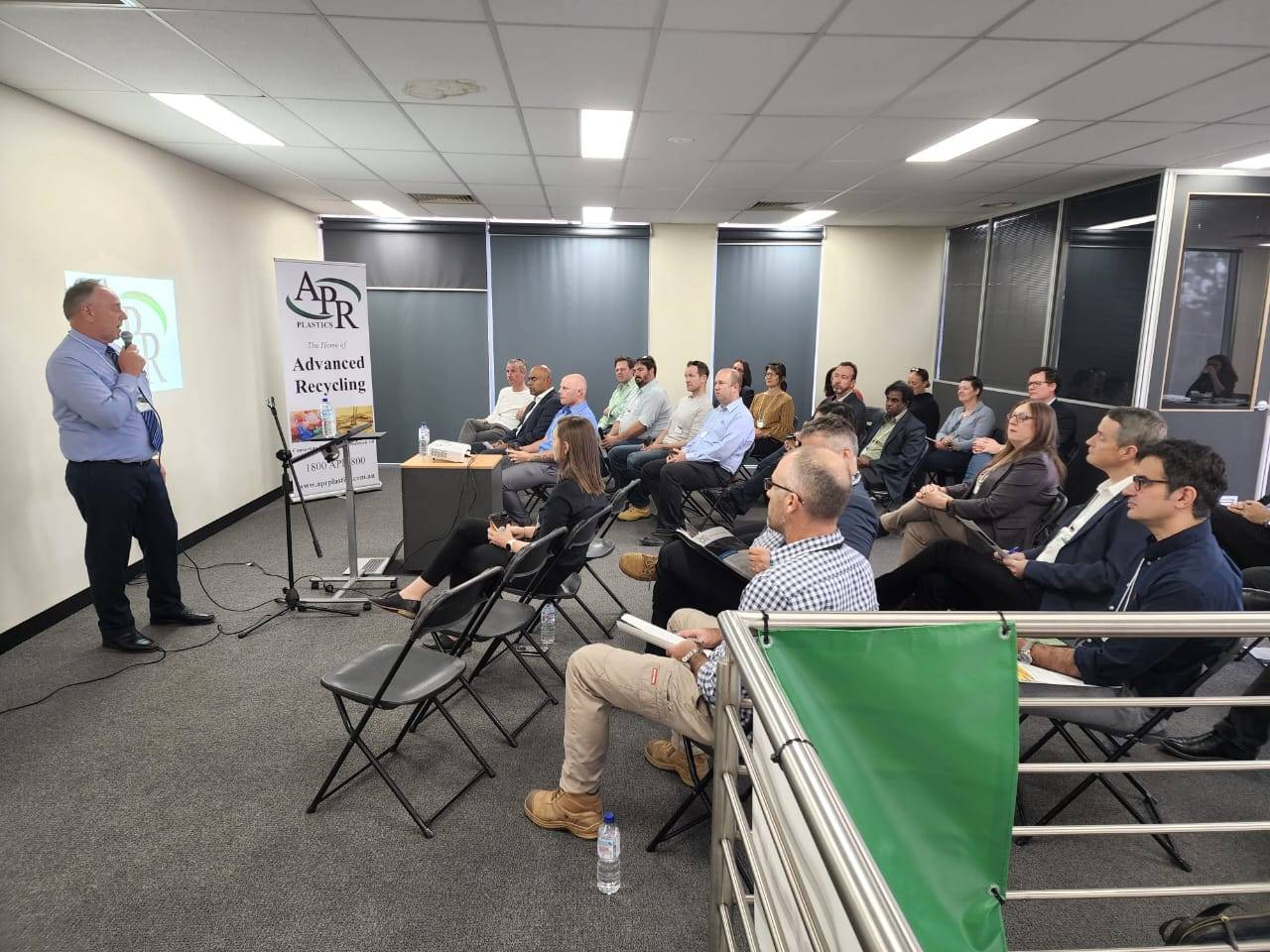
Share this post on social media
We officially landed in Australia! In July, we commissioned our first WASTX Plastic series plant in Down Under – nearly 16,000 km away from our headquarters for APR Recycling in Victoria, Australia. In an interview with APR Plastics Special Projects Manager, we talked about the importance of advanced chemical recycling and the need to raise awareness of it in the world.
A post by Sabine Tomm
APR is a family owned-business and was established in 2002. The company is specialized in the collection and sorting of paper, cardboard and plastic waste and has since recycled more than 1,000,000 tons of waste. Together with Plastoil, our Australian distributor, APR has set the shared goal of doubling the recycling rate in Australia within the next 5 years.
Plastoil, our local distribution partner representing us in Australia, played a pivotal role in the deal between APR and Biofabrik, and is known for their dedication to driving sustainable solutions. They facilitated the collaboration and broke new ground in advancing chemical recycling in Australia.
Their commitment to driving positive change in the recycling industry has been instrumental in bringing Biofabrik’s WASTX technology to the forefront across the country. We extend our appreciation to Plastoil for their crucial role in making this partnership a reality.


Personally, I can’t see the production of plastics going down, no matter how hard you try to ban them, […]. In fact, the only thing we can do is to increase recycling efforts. The best way to do that is advanced recycling alongside mechanical recycling.
From 2018-2019, 2.5 million tons of plastic waste were collected, while only 13% were recycled (National Waste Report, 2020). In addition, more than 27% of the local governments do not even provide recycling services (Commonwealth Australia 2018). As a result, about 84% of all plastic waste in Australia is sent to landfills each year (Australian Bureau of Statistics, 2020) or enters the environment and oceans.
The reasons for this are, in particular, the lack of recycling infrastructures due to the size of the country and the absence of infrastructures capable of recycling plastic waste in a sustainable manner. Mainly because all established recycling methods have their limitations in terms of the input material itself or the utility of the end products.
“We chose […] the chemical recycling path, because food-grade soft plastics cannot be recycled back to food-grade by mechanical means.”
– Logan Thorpe, Special Projects Manager APR.
During the interview, APR’s intent and vision became clear: the company wants to make a difference on a sustainable industrial scale. By operating the WASTX Plastic modular pyrolysis plant as a first mover in Australia, APR aims to raise awareness of the need for chemical recycling and increase plastic waste recovery rates on a large scale.

“I think the best way to reduce the increasing production of new materials is to recycle materials. To do that, the chemical recycling process is needed […]. I think that over the years, as the project grows and expands, we can help reduce the amount of new polymers entering the economy, because the amount continues to increase every year.”
– Logan Thorpe, Special Projects Manager APR
So far, APR’s project has attracted a lot of attention from the Australian government and international media. Logan Thorpe, however, is very happy about the attention so far as pyrolysis has never been sustainable nor economically viable before. “[…] It’s an old concept, but it’s just about getting it right and minimizing those emissions. That’s why Biofabrik has really done a great job and how they’ve designed this bit of equipment.”
By the end of 2022, APR expects the delivery of a WASTX Plastic P5 (five tons per day plant) and is already planning its next steps – the rehabilitation of a local landfill, two large-scale plants by 2023 and several 50 tons per day plants throughout Victoria. The goal of producing plastics from plastic waste is being pursued very ambitiously within the framework of a closed-loop solution with all stakeholders.
APR Plastics continuously proves that it is innovative and committed to its goal. According to Arjuna Wimalasuriya (CEO Plastoil), “APR is leading the way in understanding plastics waste is not rubbish but treats it as a resource. This understanding and collaboration with APR has helped the advancement with chemical recycling and brought Biofabrik’s WASTX technology to the forefront across Australia”.
In the interview, Logan said, “I think it’s going to be an amazing journey,” and so do we. We look forward to following up with APR soon and sharing their journey progress with you.
Follow us on Facebook, LinkedIn, or Instagram to stay up to date regularly. Also subscribe to our newsletter to never miss anything!